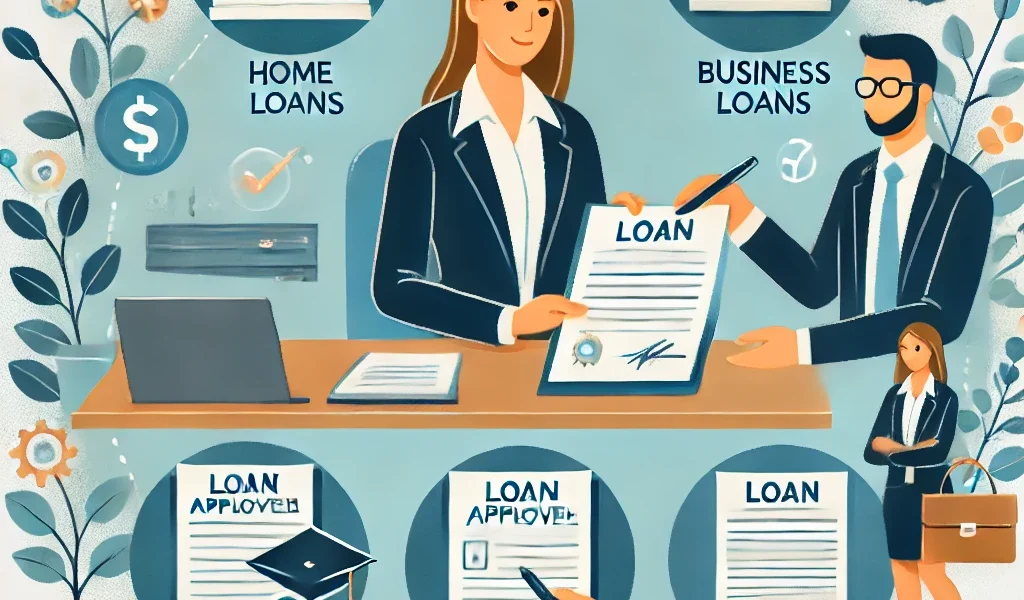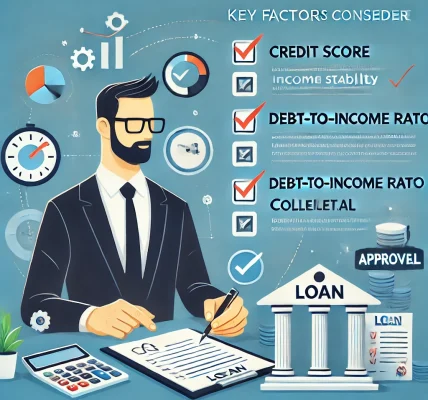Introduction
Financial independence is an essential aspect of empowerment, and governments, banks, and financial institutions worldwide have introduced various women-specific loan policies to encourage female entrepreneurship, homeownership, and education. These special loan schemes offer lower interest rates, flexible repayment options, and exclusive benefits to help women achieve financial stability.
This article explores the special benefits, eligibility criteria, and types of women-specific loan policies available, ensuring you understand how to leverage them for personal and professional growth.
1. Why Are Women-Specific Loan Policies Important?
Women-specific loan policies aim to bridge financial gaps by providing favorable loan terms and government-backed incentives. These policies are designed to:
- Encourage women entrepreneurship and economic participation.
- Provide financial support for education, housing, and business ventures.
- Offer lower interest rates and higher loan eligibility limits for women.
- Improve credit access and ease of repayment.
2. Types of Women-Specific Loans
Various loans are specifically tailored for women, catering to different financial needs. The most common categories include:
1. Business Loans for Women
Many banks and financial institutions provide loans to women entrepreneurs to start, expand, or manage their businesses. Some notable schemes include:
- Mudra Yojana for Women (India): Offers loans up to ₹10 lakh with lower interest rates.
- Women’s Business Centers (USA): Provides low-interest business loans with mentorship.
- Annapurna Scheme: Offers working capital loans for food businesses.
2. Home Loans for Women
Women borrowers often enjoy preferential interest rates and lower processing fees when applying for home loans.
- Lower Interest Rates: Most banks offer 0.05% to 0.10% lower interest rates for women.
- Longer Loan Tenure: Extended repayment periods for ease of loan management.
- Tax Benefits: Women co-owners get additional tax deductions on home loans.
3. Education Loans for Women
Women-specific education loans help fund higher education and skill development programs.
- Vidya Lakshmi Scheme (India): Special loans for higher education with subsidies.
- Federal Student Aid for Women (USA): Grants and loans for women in STEM.
4. Personal Loans for Women
Banks offer special personal loans with flexible repayment options for women. These loans are useful for medical emergencies, travel, or weddings.
- Reduced Documentation: Simplified application process.
- Higher Loan Amounts: Some banks offer higher loan limits for women applicants.
3. Eligibility Criteria for Women-Specific Loans
The eligibility criteria for women-specific loans vary depending on the type of loan and the lender’s policies. However, general eligibility conditions include:
| Loan Type | Eligibility |
|---|---|
| Business Loan | Minimum 18-21 years old, women-owned business (51%+ ownership) |
| Home Loan | Employed/self-employed, 21-60 years old, minimum income requirement |
| Education Loan | Admission in recognized institutions, parental/guardian guarantee |
| Personal Loan | Salaried/self-employed women, good credit score |
4. Key Benefits of Women-Specific Loan Policies
Women borrowers can take advantage of several benefits offered by government and private lenders, including:
✅ Lower Interest Rates
Many banks and financial institutions provide a discount of 0.05% to 0.10% on interest rates for women borrowers.
✅ Reduced Collateral Requirements
Certain loans for women require minimal or no collateral, especially for small business and education loans.
✅ Higher Loan Amounts & Longer Repayment Tenure
Women can often access higher loan amounts and longer repayment periods, making financial planning easier.
✅ Tax Benefits
Women availing of home loans can claim tax deductions under sections 80C and 24(b) of the Income Tax Act.
✅ Government Subsidies and Schemes
Many government-backed loan schemes offer additional support to women, reducing financial burdens.
5. How to Apply for Women-Specific Loans?
Applying for a women-specific loan is a straightforward process. Here’s a step-by-step guide:
Step 1: Research Loan Options
Compare various loan schemes offered by banks, NBFCs, and government programs to find the best one for your needs.
Step 2: Check Eligibility
Ensure you meet the minimum eligibility criteria, including age, credit score, and income level.
Step 3: Gather Required Documents
Most lenders require the following documents:
- Identity Proof: Aadhaar Card, Passport, PAN Card
- Address Proof: Utility bills, Rent Agreement
- Income Proof: Salary slips, ITR, Business turnover details
- Business Proof (for business loans): GST registration, business license
Step 4: Submit Application
Apply online or visit the bank’s branch to submit your loan application along with the necessary documents.
Step 5: Loan Approval and Disbursement
Once the lender reviews and approves your application, the loan amount will be disbursed directly to your bank account.
6. Things to Consider Before Taking a Loan
Before applying for a women-specific loan, consider the following factors:
🔹 Interest Rate Comparison
Compare interest rates from multiple lenders to secure the lowest possible rate.
🔹 Processing Fees & Hidden Charges
Review all applicable processing fees, late payment penalties, and hidden charges.
🔹 Repayment Capacity
Ensure you can comfortably repay the loan without affecting your financial stability.
🔹 Alternative Financing Options
Explore government grants, subsidies, or microfinance options before taking a loan.
7. Women-Specific Loan Policies vs. General Loans: A Comparison
| Feature | Women-Specific Loans | General Loans |
| Interest Rate | Lower (0.05% – 0.10%) | Standard rates |
| Processing Fees | Waived/reduced | Standard charges |
| Eligibility Criteria | Flexible | Strict requirements |
| Government Subsidies | Available | Not applicable |
| Loan Amount | Higher for women | Standard limits |
Conclusion
Women-specific loan policies are a great way for women to achieve financial independence, start businesses, buy homes, or fund education. With lower interest rates, flexible eligibility criteria, and government support, these loans are designed to make borrowing easier for women.




